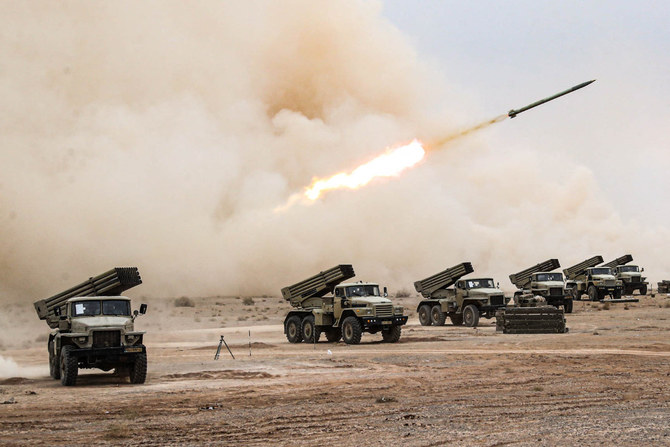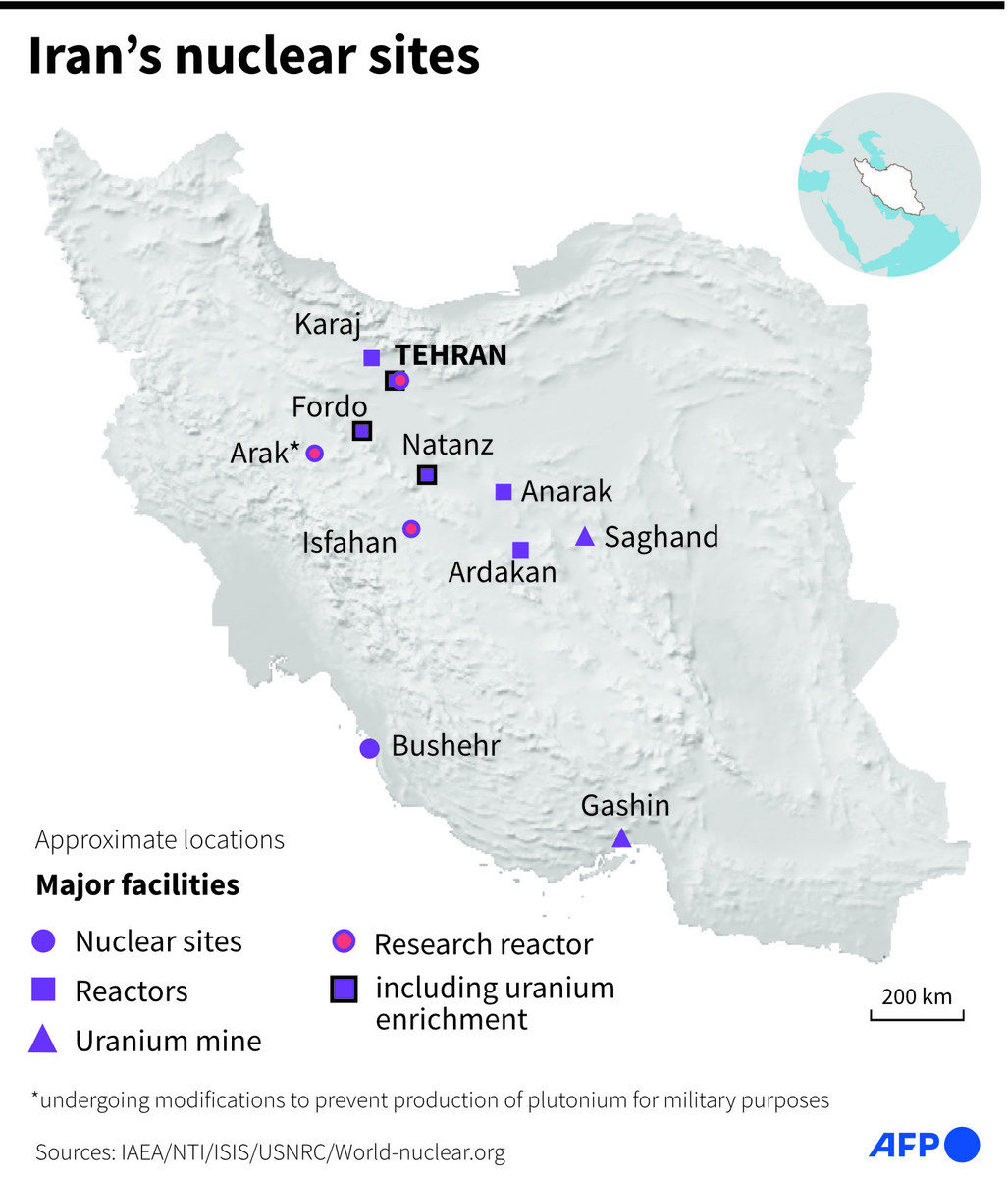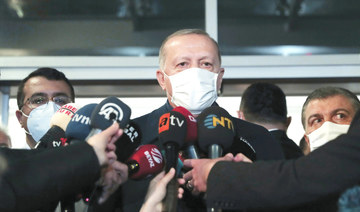ANKARA: Turkish President Recep Tayyip Erdogan is downplaying Ankara’s tensions with a host of countries as he launches a charm offensive on a variety of fronts.
Meeting with the ambassadors of EU member states in Ankara on Jan. 12, Erdogan said that he expects to “turn a new page” in ties with Europe and “set a positive agenda” in 2021.
However, his comments came at the same time as Brussels draws up an expanded sanctions list targeting Turkish individuals over Ankara’s decision to drill for offshore natural gas near Cyprus in the eastern Mediterranean. The punitive measures are set to be announced in March.
Turkey also initiated the 61st round of exploratory talks with Greece on Jan. 25 to resolve longstanding conflicts over energy rights and maritime boundaries that pushed both countries to the brink of war last year.
Similarly, Turkish and French presidents, after trading barbs last year, especially over their divergent regional policies, recently exchanged letters in which they agreed to resume talks to improve ties. The two countries are working on a roadmap to normalize relations.
Despite growing tensions last year over the drilling activities of the Oruc Reis research ship in contested waters off Greece, Erdogan also called for cooperation in the eastern Mediterranean rather than competition.
Experts remain skeptical about the success of this diplomatic sea-change and the hidden motivations behind it. Whether these steps will lead to tangible gestures in the region and globally is still a matter of concern.
Ian Lesser, vice president at the German Marshall Fund of the United States, believes Ankara is trying to modulate its foreign policy messaging, above all with the US and the EU.
“Part of this is tactical, including the desire to forestall or limit future sanctions, and to offset the influence of more hawkish voices within the EU,” he told Arab News.
According to Lesser, Ankara would prefer an agenda that is more German and less French in the coming months, and this will also be read closely by the new administration in Washington.
“With the important exception of the eastern Mediterranean, the Trump administration was not overly concerned about Turkish-EU relations or the range of issues affecting these relations. The incoming Biden administration is likely to pay more attention to migration, human rights and media freedom, all issues on the EU agenda with Ankara,” he said.
But according to Marc Pierini, a visiting academic at Carnegie Europe in Brussels and a former EU envoy to Turkey, “we have seen this movie before.”
“When Turkey finds itself stuck with failed policy choices, it performs abrupt U-turns, this time on monetary policy, and relations with the US and the EU,” he told Arab News.
In the meantime, Ankara hopes to rebuild its relations with Washington under Joe Biden, and failed to react harshly to the appointment of Brett McGurk, a staunch Turkey critic, as the National Security Council’s Middle East and North Africa coordinator.
Pierini believes that such Turkish U-turns have zero credibility.
“You can’t say that Turkey’s future is in Europe — only weeks after saying Germany was ‘Nazi’ and France needed to get rid of its mentally impaired president,” he said, referring to the feud between Erdogan and his French counterpart Emmanuel Macron last year when the Turkish leader advised Macron to have a mental health checkup over his comments on Islam.
“While dismantling the rule of law week after week, Turkey’s leadership wants European leaders to believe that major governance reforms are around the corner and that its accession ambitions are alive,” Pierini said.
“The same goes with NATO, at a time when Turkey has deliberately facilitated Russia’s strategic objectives against the Atlantic alliance,” he added.
Ankara’s stubborn stance over the S-400 Russian air defense system remains a strong deterrent for any normalization with the US administration as the system is considered incompatible with the NATO version and could be used by Moscow to obtain classified details on the US F-35 jets.
However, experts are divided about whether these efforts will prove successful.
Lesser believes that rhetoric does make a difference, and that the Turkey debate has become so critical on both sides of the Atlantic that leaders and observers are looking for concrete change on the S-400 issue and other fronts.
“This will not be easy. There is probably a time-limited window for Ankara to demonstrate that there is substance behind these multiple signals of detente,” he said.
For Pierini, to find a way out of these massive contradictions, EU leaders will have to strike a balance between their own credulity and the artificial narratives emanating from Ankara.
“Before doing so, they will talk to the Biden administration,” he said.
At the end of 2020, Erdogan also expressed a desire to mend ties with Israel amid speculation that both countries would reappoint ambassadors.
Gallia Lindenstrauss, senior research fellow at the Institute for National Security Studies in Israel, said that the drivers behind Turkey’s overtures to Israel include: Preparations for the incoming US administration; tensions in the eastern Mediterranean, and the desire to drive a wedge between Israel, Cyprus and Greece; the Abraham accords and the end of the blockade on Qatar which requires Turkey to rethink its policies toward the Middle East; and the recent war between Armenia and Azerbaijan that reminded Ankara of the advantages of cooperating with Israel.
Although the return of diplomatic ties is a feasible aim, she doesn’t expect any change before the Israeli elections in March and the formation of a new government.
“However, this will not fundamentally improve relations as there is deep suspicion between the two states,” Lindenstrauss told Arab News.
“Also Israel will likely make additional demands from Turkey to show that its overtures are sincere, such as Ankara halting Hamas military activity organized on its soil and directed against Israel and the West Bank, as well as more transparency about Turkey’s projects in East Jerusalem,” she added.
Will Turkey succeed with its new charm offensive?
https://arab.news/2e9q6
Will Turkey succeed with its new charm offensive?

- Erdogan said that he expects to “turn a new page” in ties with Europe and “set a positive agenda” in 2021
- Turkey also initiated the 61st round of exploratory talks with Greece on Jan. 25 to resolve longstanding conflicts
Dubai carrier Emirates suspends check-in for onward connections, flydubai cancels Iran flights

- Emirates suspends check-in for all customers in its network travelling with onward connections through Dubai
DUBAI: Dubai’s flydubai airline canceled flights to Iran on Friday after receiving an official alert, a statement said.
“In line with the issued NOTAM (notice to air missions), our flights to Iran today have been canceled,” said the statement
One flight which had already departed for Tehran returned to Dubai after the Iranian capital’s airport was closed, it added.
Flights were suspended across swathes of Iran as Iranian state media reported explosions in the central province of Isfahan.
Flight-tracking software showed commercial flights avoiding western Iran, including Isfahan, and skirting Tehran to the north and east.
Emirates meanwhile said on Friday it was suspending check-in for all customers in its network travelling with onward connections through Dubai until 2359 GMT on April 19.
Emirates, one of the world’s biggest international airlines, added that customers travelling to Dubai as their final destination may check-in and travel as usual.
Emirates and flydubai have experienced serious disruption this week after record rainfall caused more than 1,000 flight cancelations at Dubai airport, one of the world’s busiest air hubs.
Iran closes air space, commercial flights diverted after apparent Israeli retaliatory strikes

- Drones shot down over Isfahan, says Iranian state media
- Israel military refuses to comment on incident
DUBAI/WASHINGTON: Israeli missiles have hit a site in Iran, ABC News reported late on Thursday, citing a US official, while Iranian state media reported an explosion in the center of the country, days after Iran launched a retaliatory drone strike on Israel.
Commercial flights began diverting their routes early Friday morning over western Iran without explanation as one semiofficial news agency in the Islamic Republic claimed there had been “explosions” heard over the city of Isfahan.
Some Emirates and Flydubai flights that were flying over Iran early on Friday made sudden sharp turns away from the airspace, according to flight paths shown on tracking website Flightradar24.
“Flights over Isfahan, Shiraz and Tehran cities have been suspended,” state media reported.
Iranian officials said its air defenses did shot down several drones but there had been “no missile attack for now” on the country.
The state-run IRNA news agency reported that Iran fired air defense batteries early Friday morning across several provinces after reports of explosions near the city of Isfahan.
Several drones “have been successfully shot down by the country’s air defense, there are no reports of a missile attack for now,” Iran’s space agency spokesman Hossein Dalirian says on X.
The Fars news agency said “three explosions” were heard near the Shekari army airbase near Isfahan.
Iran’s local media also reported that nuclear facilities in Isfahan were “completely secure” after explosions were heard near the area.
“Nuclear facilities in Isfahan province are completely secure,” Tasnim news agency reports, quoting “reliable sources.”
Israel had said it would retaliate against Iran’s weekend attack, which involved hundreds of drones and missiles in retaliation for a suspected Israeli strike on its embassy compound in Syria. Most of the Iranian drones and missiles were downed before reaching Israeli territory.
Several Iranian nuclear sites are located in Isfahan province, including Natanz, centerpiece of Iran’s uranium enrichment program. Isfahan, Isome 350 kilometers (215 miles) south of Iran’s capital, Tehran, is also home to a major air base for the Iranian military.
Meanwhile in Iraq where a number of Iranian-backed militias are based, residents in Baghdad reported hearing sounds of explosions, but the source of the noise was not immediately clear.
In Syria, a local activist group said strikes hit an army position in the south of the country Friday.
“There were strikes on a Syrian army radar position,” said Rayan Maarouf, who runs the Suwayda24 anti-government website that covers news from Sweida province in the south.
Iranian military positions in Syria had been frequently targetted by Israeli air strikes over the past years. Early this month, an Israeli strike demolished a consular building annex of the Iranian Embassy in Sydia's capital Damascus, killing 13 people, including two generals of Iran's Revolutionary Guards, triggering the Iranian missiles and drones attack on Israel on April 13.
At the United Nations Security Council on Thursday, Iran urged member nations that Israel “must be compelled to stop any further military adventurism against our interests” as the UN secretary-general warned that the Middle East was in a “moment of maximum peril.”
Israel had said it was going to retaliate against Iran’s April 13 missile and drone attack.
Analysts and observers have been raising concerns about the risks of the Israel-Gaza war spreading into the rest of the region.
Oil prices and jumped on the reports of the Israeli strike. Brent crude futures rose 2 percent to $88.86 a barrel, the dollar gained broadly, gold rose 1 percent and S&P 500 futures dropped 1 percent.
Israel’s assault on Gaza began after Palestinian Islamist group Hamas attacked Israel on Oct. 7, killing 1,200, according to Israeli tallies.
Israel’s military offensive has killed over 33,000 Palestinians in Gaza, according to the local health ministry.
Iran-backed groups have declared support for Palestinians, launching attacks from Lebanon, Yemen and Iraq.
United States had advance warning of Israel attack on Iran: US media

- US media: Israel had provided Washington with pre-notification of the strike
- Tehran’s two major airports resumed flights following a brief suspension
DUBAI/WASHINGTON/TEHRAN: The United States received advance notice of Israel’s reported strike on Iran but did not endorse the operation or play any part in its execution, US media quoted officials as saying.
NBC and CNN, citing sources familiar with the matter and a US official, respectively, said Israel had provided Washington with pre-notification of the strike.
Various networks cited officials confirming a strike had taken place inside Iran, with CNN quoting one official as stating the target was not a nuclear facility.
Israel told the United States on Thursday it would be retaliating against Iran in the coming days, a senior US official told CNN.
“We didn’t endorse the response,” the official said, according to CNN.
There was no immediate comment from the White House about the Israeli strike.
In response to a query from AFP, the Pentagon duty desk said: “We do not have anything to offer at this time.”
Iran activated its air defense system over several cities, state media reported, after the country’s official broadcaster said explosions were heard near the central city of Isfahan.
Israel warned it would hit back after Iran fired hundreds of missiles and drones at its arch-foe over the weekend. Most of them were intercepted.
That weekend barrage came in the wake of an attack on Iran’s consulate in Damascus widely blamed on Israel.
Tehran’s two major airports resumed flights on Friday, state media reported, following a brief suspension after explosions were heard in central Iran.
“Flights through Imam Khomeini and Mehrabad airports have resumed,” the official IRNA news agency reported.
Commercial flights began diverting their routes early Friday morning over western Iran without explanation as one semiofficial news agency in the Islamic Republic claimed there had been “explosions” heard over the city of Isfahan.
Some Emirates and Flydubai flights that were flying over Iran early on Friday made sudden sharp turns away from the airspace, according to flight paths shown on tracking website Flightradar24.
“Flights over Isfahan, Shiraz and Tehran cities have been suspended,” state media reported.
Iranian officials said its air defenses did shot down several drones but there had been “no missile attack for now” on the country.
The state-run IRNA news agency reported that Iran fired air defense batteries early Friday morning across several provinces after reports of explosions near the city of Isfahan.
Several drones “have been successfully shot down by the country’s air defense, there are no reports of a missile attack for now,” Iran’s space agency spokesman Hossein Dalirian says on X.
The Fars news agency said “three explosions” were heard near the Shekari army airbase near Isfahan.
Iran’s local media also reported that nuclear facilities in Isfahan were “completely secure” after explosions were heard near the area.
“Nuclear facilities in Isfahan province are completely secure,” Tasnim news agency reports, quoting “reliable sources.”
Israel had said it would retaliate against Iran’s weekend attack, which involved hundreds of drones and missiles in retaliation for a suspected Israeli strike on its embassy compound in Syria. Most of the Iranian drones and missiles were downed before reaching Israeli territory.
Several Iranian nuclear sites are located in Isfahan province, including Natanz, centerpiece of Iran’s uranium enrichment program. Isfahan, Isome 350 kilometers (215 miles) south of Iran’s capital, Tehran, is also home to a major air base for the Iranian military.

Meanwhile in Iraq where a number of Iranian-backed militias are based, residents in Baghdad reported hearing sounds of explosions, but the source of the noise was not immediately clear.
In Syria, a local activist group said strikes hit an army position in the south of the country Friday.
“There were strikes on a Syrian army radar position,” said Rayan Maarouf, who runs the Suwayda24 anti-government website that covers news from Sweida province in the south.
Iranian military positions in Syria had been frequently targetted by Israeli air strikes over the past years. Early this month, an Israeli strike demolished a consular building annex of the Iranian Embassy in Sydia's capital Damascus, killing 13 people, including two generals of Iran's Revolutionary Guards, triggering the Iranian missiles and drones attack on Israel on April 13.
At the United Nations Security Council on Thursday, Iran urged member nations that Israel “must be compelled to stop any further military adventurism against our interests” as the UN secretary-general warned that the Middle East was in a “moment of maximum peril.”
Israel had said it was going to retaliate against Iran’s April 13 missile and drone attack.
Analysts and observers have been raising concerns about the risks of the Israel-Gaza war spreading into the rest of the region.
Oil prices and jumped on the reports of the Israeli strike. Brent crude futures rose 2 percent to $88.86 a barrel, the dollar gained broadly, gold rose 1 percent and S&P 500 futures dropped 1 percent.
Israel’s assault on Gaza began after Palestinian Islamist group Hamas attacked Israel on Oct. 7, killing 1,200, according to Israeli tallies.
Israel’s military offensive has killed over 33,000 Palestinians in Gaza, according to the local health ministry.
Iran-backed groups have declared support for Palestinians, launching attacks from Lebanon, Yemen and Iraq.
Hamas slams US veto of Palestinian UN membership bid

PALESTINIAN TERRITORIES: Palestinian militant group Hamas condemned on Friday the US veto that ended a long-shot Palestinian bid for full United Nations membership.
“Hamas condemns the American veto at the Security Council of the draft resolution granting Palestine full membership in the United Nations,” the Gaza Strip rulers said in a statement, which comes amid growing international concern over the toll inflicted by the war in the besieged Palestinian territory.
The veto by Israel’s main ally and military backer had been expected ahead of the vote, which took place more than six months into Israel’s offensive in Gaza, in retaliation for the deadly October 7 attack by Hamas militants.
Twelve countries voted in favor of the draft resolution, which was introduced by Algeria and “recommends to the General Assembly that the State of Palestine be admitted to membership of the United Nations.” Britain and Switzerland abstained.
Gazans search for remains after deadly Rafah strike

- ‘We retrieved the remains of children and women, finding arms and feet. They were all torn to pieces’
An Israeli strike hit the home where a displaced Palestinian family was sheltering in the southern city of Rafah, relatives and neighbors said as they scraped at the soil with their hands.
Al-Arja said the blast killed at least 10 people.
“We retrieved the remains of children and women, finding arms and feet. They were all torn to pieces.
“This is horrifying. It’s not normal,” he said, hauling concrete and broken olive branches from the wreckage. “The entire world is complicit.”
Soon after the war began on Oct. 7, Israel told Palestinians living in the north of Gaza to move to “safe zones” in the territory’s south, like Rafah.
But Israeli Prime Minister Benjamin Netanyahu has since vowed to invade the city, where around 1.5 million people live in shelters, more than half the territory’s population.
“How is Rafah a safe place?” said Zeyad Ayyad, a relative of the victims. He sighed as he cradled a fragment of the remains.
“I heard the bombing last night and then went back to sleep. I did not think it hit my aunt’s house.”
The search for remains was long and painful. The strike left a huge crater and children picked through the rubble while neighbors removed debris, tarpaulin, a pink top.
“We can see them under the rubble and we’re unable to retrieve them,” Al-Arja said.
“These are people who came from the north because it was said the south is safe.”
“They struck without any warning,” he said.
In a separate strike on the house in Rafah’s Al-Salam neighborhood overnight on Tuesday, rescue crews recovered the corpses of eight family members, including five children and two women, Gaza’s civil defense service said.
“An Israeli rocket hit a house of displaced people,” said resident Sami Nyrab.
“My sister’s son-in-law, her daughter, and her children were having dinner when an Israeli missile demolished their house over their heads.”

















